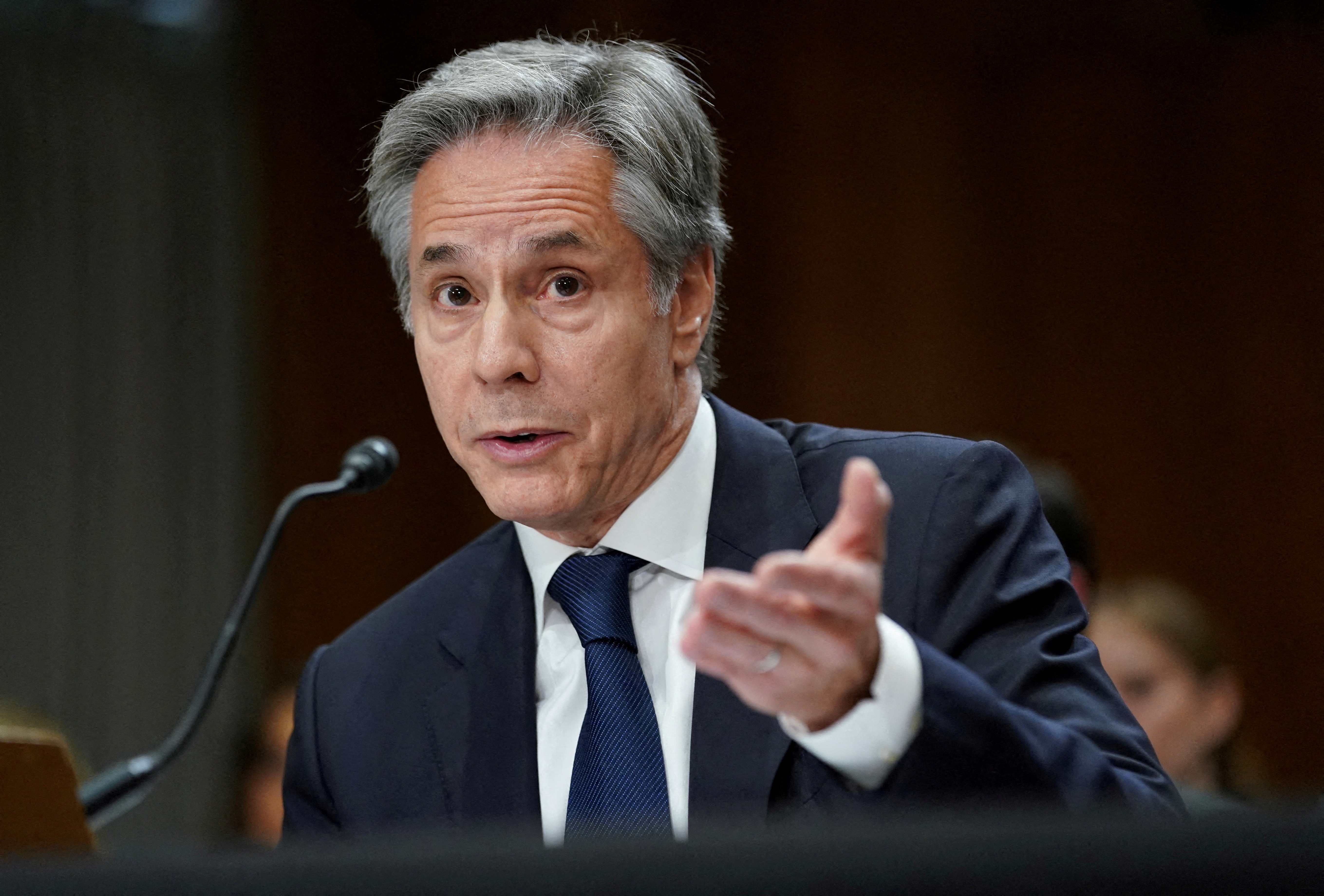Georgia's ruling party accuses US of 'blackmail' over visa restrictions
By ReutersMay 24, 202410:21 AM EDT Updated 4 hours ago

U.S. Secretary of State Antony Blinken testifies before a Senate Foreign Relations Committee hearing on Capitol Hill in Washington, U.S., May 21, 2024. REUTERS/Kevin Lamarque/File Photo Purchase Licensing Rights, opens new tab
- Summary
- Draft "foreign agents" law has caused protests in Georgia
- U.S. has said it is imposing new visa restrictions
- Bill threatens historically strong U.S.-Georgia ties
The bill, which would require organisations receiving over 20% of their funding from abroad to register as "foreign agents", has sparked a political crisis in the South Caucasus country and threatens its historically strong ties with Washington, a major aid donor.
U.S. Secretary of State Antony Blinken said on Thursday Washington was launching a review of cooperation with Georgia and imposing visa restrictions on individuals "responsible for or complicit in undermining democracy in Georgia", as well as their family members.
Blinken said the draft law, which has triggered large street protests in Georgia for over a month, would "stifle the exercise of freedoms of association and expression" and impede independent media organizations' work.
The ruling Georgian Dream party said on Facebook that the visa restrictions were "nothing but a gross attempt to restrict Georgia's independence and sovereignty."
"No blackmail whatsoever can force us to go against our country," it said.
The head of the governing bloc's parliamentary faction called said the U.S. move was "comical" and that it threatened to restrict Georgia's independence.
"The country's independence is not for sale for any visas", Mamuka Mdinaradze wrote on Facebook.
Germany and France this week expressed deep concern over the path taken by Georgia, and the European Union has urged Tbilisi to withdraw the bill, saying the measure would set back the nation's ambitions to join the bloc.
BIG PROTESTS
The bill cleared Georgia's parliament last week. It was vetoed by the president but Georgian Dream said on Friday it would begin the procedure to override the veto next week.Opposition to the draft law has triggered some of the biggest protests in Georgia since it gained independence from the Soviet Union more than 30 years ago.
Critics in the country of 3.7 million call it "the Russian law", likening it to legislation used by Moscow to crack down on dissent. Brussels and Washington portray it as authoritarian and Russian-inspired.
A group of Georgian opposition parties issued a statement applauding the U.S. move, saying it would "protect the constitution, sovereignty and freedom of Georgia, and the European and Euro-Atlantic future of our country".
Russia denies any direct association with the draft law, but accused the U.S. on Thursday of blackmail after Washington sent signals it may cut aid to Tbilisi and introduce sanctions.
Georgia has benefited from some $6 billion in U.S. aid packages since the early 1990s. U.S. Assistant Secretary of State James O'Brien said this month that Washington would review a $390-million aid package to Georgia because of the draft law.